Witchblade: Volume 4
Introduction
We're at the midway point of Witchblade now, and if this were the typical Gonzo sci-fi action series, then this would be the point where the story would change tack for no reason whatsoever, introduce a whole bunch of new, ephemeral characters, and increase the explosion and eye-candy content to distract the viewer from the further descent (or should that be ascent) into shallowness. Witchblade isn't the typical Gonzo sci-fi action series, for which reason we should all be turning cartwheels for joy.
Witchblade is a comic book creation from Top Cow studios in the US, a slightly more mature title in the Dark Knight vein, which saw homicide detective Sara Pezzini come into possession of the Witchblade, a mystical gauntlet that bonds with its female owner, gifting her with tremendous powers and abilities. It's selective in who it chooses, a main priority being that the wielder has to look good naked, for when its powers are called upon, clothing vanishes to be replaced by a judiciously placed set of armour, grown organically from the gauntlet. Experts in action anime Gonzo have taken the Top Cow comic book and given it a Tokyo makeover, and for this new incarnation of the story, gone is Sara Pezzini, and in comes Masane Amaha, with an even scantier costume that would make sailors blush. Cleavage of all sorts abounds, jiggle is judiciously applied, and all in the name of the great goddess Fan Service, while beneath it all is a decent story, with interesting and well-written characters.
Set in the near future, the Witchblade has passed to a new owner, Masane Amaha. Six years previously, after the great earthquake had decimated Tokyo, Masane and her daughter Rihoko were found at the epicentre of the quake. Masane lost her memory, and all she had left was her daughter. When they return to the ruins of Tokyo to rebuild their home and start afresh, they find that the world is a far different place, as they have to avoid the attentions of the NSWF who are after the Witchblade, and its subsidiary Child Welfare Agency who have an interest in Rihoko. However, soon after Masane's abilities manifest, she's discovered by Douji Industries. Douji and NSWF were partners in researching the Witchblade six years ago, and Douji still think of the Witchblade as their property. They also feel obligated to clear up the mess that resulted from that catastrophe, including the release of dangerous killer X-Cons into the city, biomachines that the Witchblade is ideally suited to deal with. Douji winds up employing Masane, using her abilities, and keeping her away from the NSWF. It's just that the NSWF have made strides in replicating Witchblade technology for themselves…
Four more episodes of Witchblade are presented on this MVM disc. As we concluded volume three, Masane had just gotten free of the insidious clutches of the NSWF, only to come home to distressing news.
13. Separation
The Child Welfare Agency have returned, and this time they have proof that Rihoko and Masane are not related. What's more, Rihoko's real mother has turned up and she wants to be reunited with her child. Their first reaction is to go on the run, and with the help of the denizens of Marry's Gallery, Rihoko and Masane are soon lying low. The shocking thing is that Rihoko's mother is none other than Reina Sohou, and a Cloneblade has a better than average chance of tracking the fugitives down. When it comes to the crucial moment, Masane has to decide what's best for Rihoko, even though it will break her heart. Meanwhile at NSWF, wunderkind Cloneblade candidate Maria wants to know whom her own mother is, and she's throwing tantrums again. Furimizu promises to reveal the truth, if only Maria completes her training.
14. Family
Reina is still the consummate scientist, and is keeping detailed logs regarding her new project. The scientific method is no substitute for parenting skills, and her new relationship with Rihoko gets off to a shaky start. Rihoko is having a hard time relating to her birth mother, and she finds it hard to fit in, in a house where she is expected to act like a child, yet not bother Reina. But this new relationship may have deeper problems, Reina's Cloneblade is beginning to break down, and that is usually fatal for the bearer. Meanwhile Masane is in the middle of a dark depression. Takayama shows up, and in an effort to cheer up his prize subject, he offers to take her back to the past, to show her who she was before that earthquake erased her memories 6 years previously. It's bad timing though, as his rivals at Douji put their own Witchblade Project in motion. At NSWF, Maria completes her training, and learns who her mother was. So does reporter Tozawa, who's still investigating the NSWF. While the neo-genes all have different mothers, they share the same, single father.
15. Bonds
Tozawa gives Masane a call to give her a heads up on the NSWF's inbreeding program. He also urges her to get Rihoko back, saying that even if Reina can be trusted, the people around her certainly can't. Masane is still torn over the matter, after all a daughter should be with her mother right? That's what Maria thinks, and she escapes from her training facility to go looking for her mother, only the path that she's on leads to Reina Sohou's front door. She's looking forward to finally meeting mum, but she isn't expecting to meet her 'older' half sister. It brings out that Cloneblade tantrum from within. Reina tries to get Rihoko to safety, but to make matters worse, a bunch of X-Cons appear attracted to the Cloneblade energy. Will Masane make up her mind in time?
16. Relaxation
In exchange for his aid in hacking the Cloneblade data, breast-fiend Chou wants Tozawa to set him up on a group date to the beach, with lots of college girls. If Chou is flush enough to enjoy a day out, he can afford his rent; at least that's what the landlady at Marry's Gallery is thinking. Which is why all the residents of Marry's Gallery are soon invited along. It's a chance for Masane and Rihoko to get some proper mother daughter time together on the beach. It's a chance for Chou to see Masane barely contained by a bikini. It's a dream come true, but Takayama has a nightmare cloud to the silver lining.
Picture
If you are a hardcore Witchblade fan of old, you may be disappointed by this adaptation, as while the Witchblade itself is recognisable, the art and character design is very much Gonzo's own, with just a couple of concessions made to the original property. If you've seen a Gonzo action show of late, like Burst Angel or Trinity Blood, you'll be familiar with the look of the characters, the bright hazy feel to the animation, and the emphasis on eye candy and action. It's a 1.78:1 anamorphic transfer, and the image is clear and sharp for the most part, with just the usual digital banding and minor compression artefacts common with anime to note.
With Witchblade, you would expect fan service aplenty, and you wouldn't be disappointed. Masane has the sort of cleavage that keeps plastic surgeons in clover, and induces back problems in the real world, but in the animated world is shown off to generous advantage by the scanty nature of the Witchblade armour, as is her backside. What surprised me is how restrained it all was. This is no Battle Vixens, where the action slows down and even freeze frames to show off some enhanced female anatomy, Masane the character comes first, as does the story, and the Witchblade armour is treated as incidental to that. That isn't to say that the show doesn't cater to the teenage male demographic, but it's never gratuitous, and jiggle is left to a minimum. To quote Kenny Everett, "It's all done in the best possible taste!"
Sound
As usual for many an anime disc, you have DD 2.0 Japanese and DD 5.1 English to choose from, along with translated subtitles and signs. I chose the Japanese of course, the dialogue was clear, and there was sufficient stereo separation to render the action sequences with vibrancy. The surround is the soundtrack of choice in that respect, but the dub is unspectacular, if passable. What I sampled of it failed to impress me, with a rather workmanlike set of performances, and the perennial annoyance of a ten year old child sounding like a high pitched 30-year-old.
You get a new set of credit sequences from this volume onward, including a new opening theme that channels Bob Marley into Japanese.
Extras
As ever you get the animated menus and jacket picture, along with the new textless songs for the second set of credit sequences, and trailers for Shana and Black Lagoon. There aren't any multi-angle credits for the show, but from this volume you at last get the English language credits. It does mean however that the re-edited credit sequences are of lower quality than the rest of the animation, more prone to aliasing.
The Witchblade Forged: Part 2 lasts 17 minutes, and is a talking heads piece that looks at the success of the Witchblade comics. The depth of story and character contributed to the expansion of Top Cow comics when the rest of the industry was in a decline. You might have to turn your surround off for the duration, as it's one of those pieces that send the sound to every speaker.
The interview is with the Japanese voice actor, Mie Sonozaki (Reina Sohou). It lasts 8 minutes, and is a light, friendly affair as she talks about the character and the story.
Conclusion
Go on, be honest, you come to Witchblade for the fan service. Buxom women facing off against each other clad in micro armour that leaves nothing to the imagination, and to help that imagination along, some rather creative camera angles, and animators who apparently get paid by the jiggle. Then along comes volume 4, and it takes something of a step back from the slicing and the dicing, and offers something more along the lines of character and story. I can sense a couple of hundred teenage hearts sinking right now. Well stop them from sinking, as volume 4 is probably the best instalment of Witchblade yet, something pretty impressive in what is probably one of Gonzo's best series in ages.
It isn't as if fan service is denied in this volume, it's just that the story is so entertaining and engrossing, that I found myself not really caring about the booby bombs. In fact I was having myself a Dougal moment, when at the end credits of each episode, my brain would click and all of a sudden I'd get a "Those women were in the nip!" flashback. Of course I have enough of an inner teen remaining to skip back through the episode and check. But I'm actually watching Witchblade despite the fan service, not because of it. Now that's the sort of realisation that makes you stop and reappraise your life.
We ended the previous volume on the bombshell that Rihoko was not Masane's daughter. Given the amnesia that Masane has regarding the earthquake, and the circumstances in which the pair were rescued, it's an understandable development, but given that it is the Child Welfare Agency, allied with the NSWF making the announcement, there's a hint of menace about it all. What's unexpected is the identity of the mother, Reina Sohou, and the circumstances of Rihoko's childhood. With it comes an added revelation regarding the NSWF's Neo-Gene and Cloneblade projects. Fortunately for the sake of my sanity and keeping the good guys within the bounds of good taste, Rihoko's birth came when Reina acted outside the NSWF to have a child of her own. Given that we can see what the alternative could have been in Maria, it's definitely a good thing that she did.
While Maria may exist on the edge of psychosis, Reina's own engineered upbringing has left its mark on her. She's taken refuge in science, documenting her own condition with the Cloneblade, and everything else that she does. While her initial encounters with Rihoko were kindly, it's immediately apparent that she considers Rihoko an experiment, and treats her as such. It's a wrench for Masane to give up Rihoko, but it's obvious when Reina has saved Rihoko twice that she is better equipped to protect her. Masane also thinks that her life as the Witchblade would mean an uncertain future for Rihoko, and sees Reina as being able to offer more stability, although the fact that Reina is a Cloneblade should have been ringing alarm bells from the first. Masane is more concerned about her own suitability as a mother to see clearly. It's one of those character clichés that she remains blind to the truth while all those around can see clearly, but it works here. She gives Rihoko a push in the right direction, and Rihoko resolves to make the best of the situation and develop a relationship with Reina. It's a hard ask though, as Reina is still documenting every aspect of her relationship with her newfound daughter, trying to live up to the textbook definition of a mother, and insisting on making Rihoko the perfect daughter.
What makes it more tragic is that Reina's Cloneblade begins to degrade, and it becomes clear that Reina is in a race against time to try and find some genuine human feeling within her. She wants to be a nurturing, protective mother, something that Masane does by instinct, but her own analytical nature is what's putting up the barrier. It's only when Maria turns up, looking for her genetic mother that Reina's protective instincts awaken.
Meanwhile Masane is bereft without Rihoko, regretting giving her up, but believing that she has given her a better life. Takayama tries to take her mind off things by unveiling her lost past. Douji isn't without its resources, but even they can only trace Masane's past back to just before the Earthquake. He takes her back to the wreck of an orphanage, where Masane was apparently raised. It's not much of a past, but it does serve to remind her of how important family is.
While most of the disc is devoted to this rather tragic arc, there is something for fans of flesh and jiggle. We have a beach and bikini episode. There is a wee bit of story to keep the engine ticking over, with some further revelations about the Witchblade that make Masane more determined than ever to protect Rihoko, but most of the episode is spent, lazing on the beach, as breast-fiend Chou tries to find his own little bit of heaven, surrounded by college girls who think he's a rich eccentric billionaire, while Masane in a bikini is as every bit nosebleed-inducing as you would expect.
After the first three episodes on the disc giving us separation, doomed family reunions, haunted pasts, and corporate machinations, it's a much needed pause for lightness, and given that there are two volumes remaining, it's probably the last breather we will get as the series gets into serious finale building stuff. Witchblade is the best Gonzo production I've seen in ages, and it's great that MVM are bringing it to the UK. It's a series I can recommend without reservation.
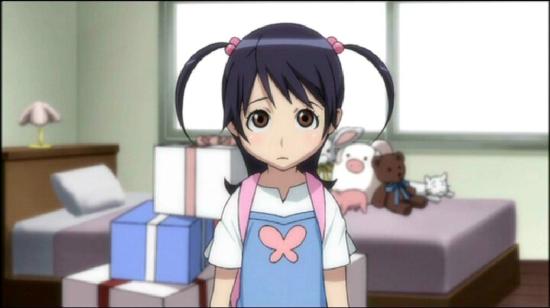
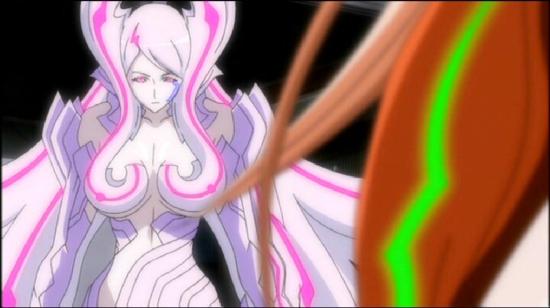
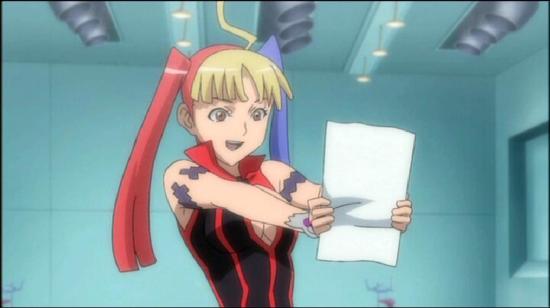
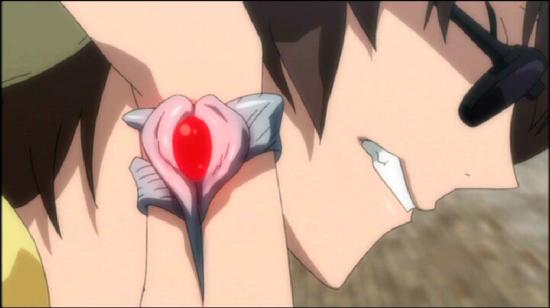
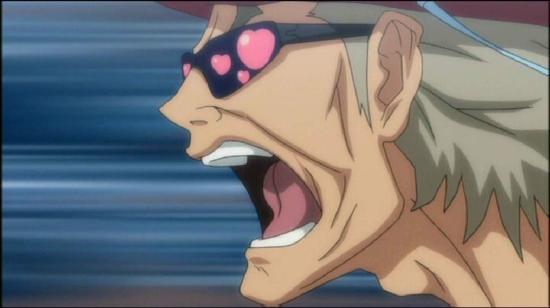
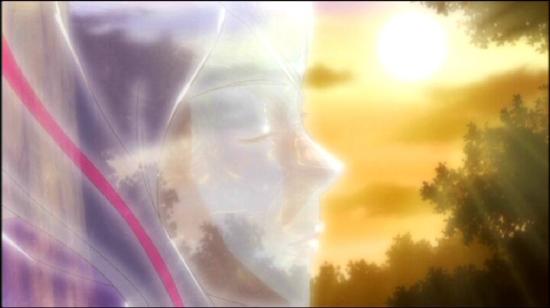
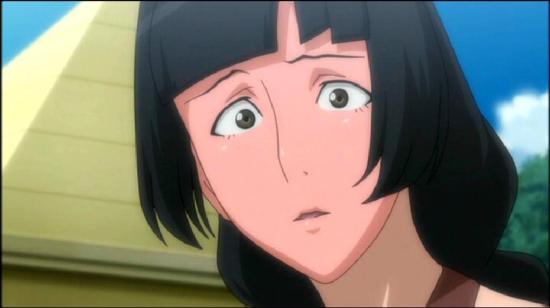
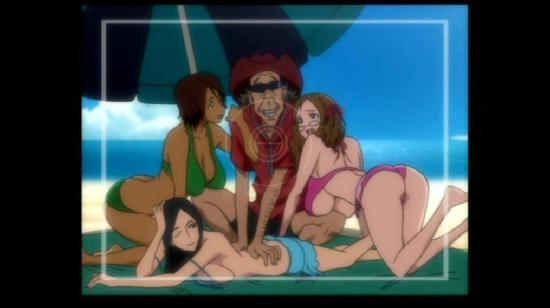
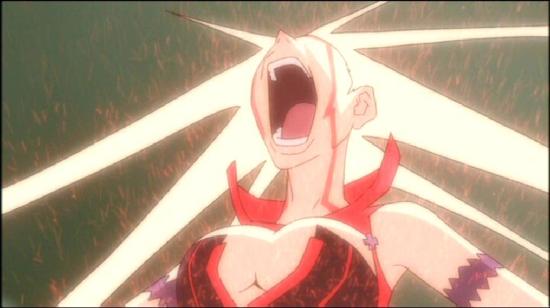
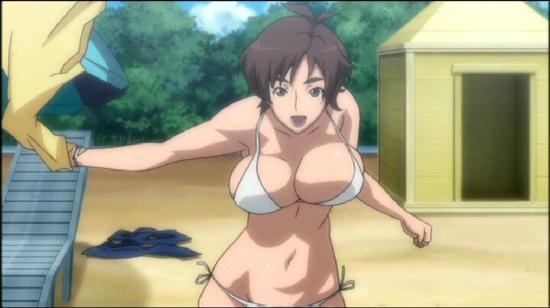
Your Opinions and Comments
Be the first to post a comment!